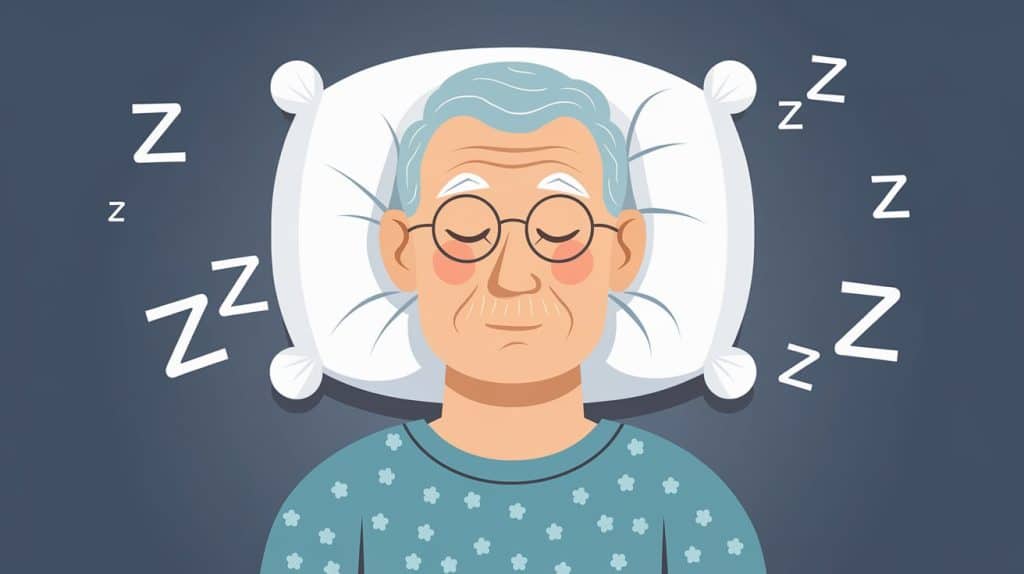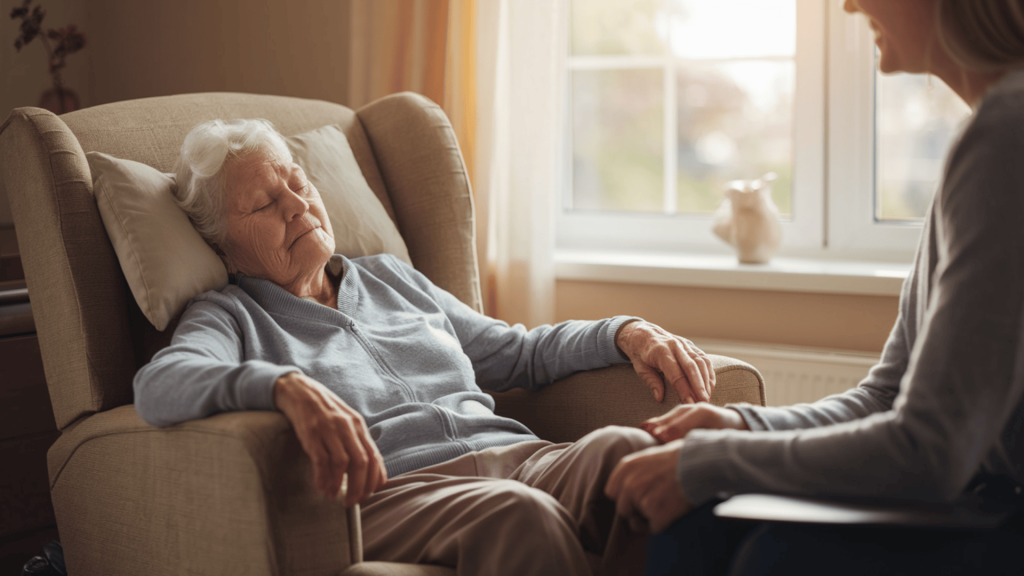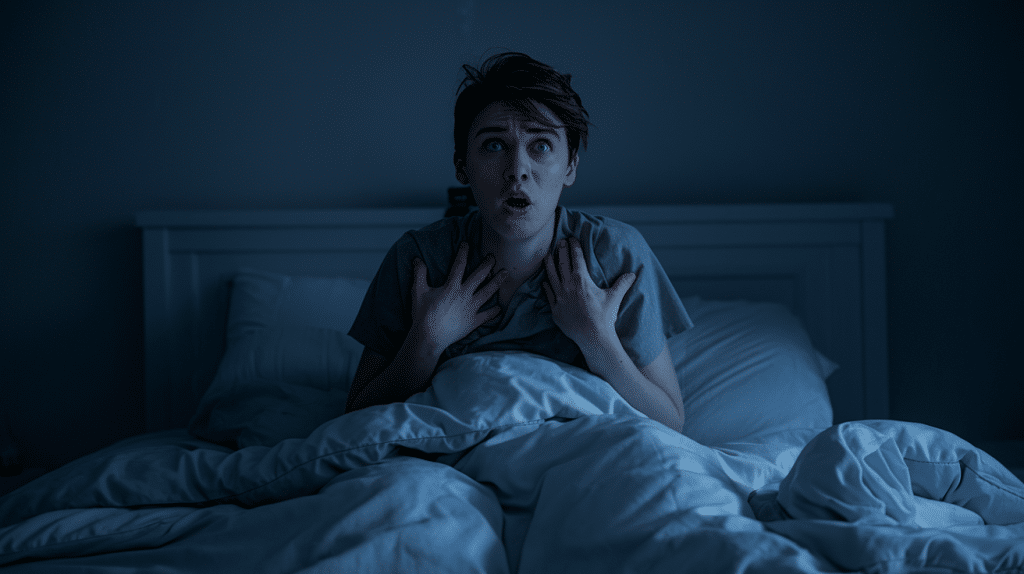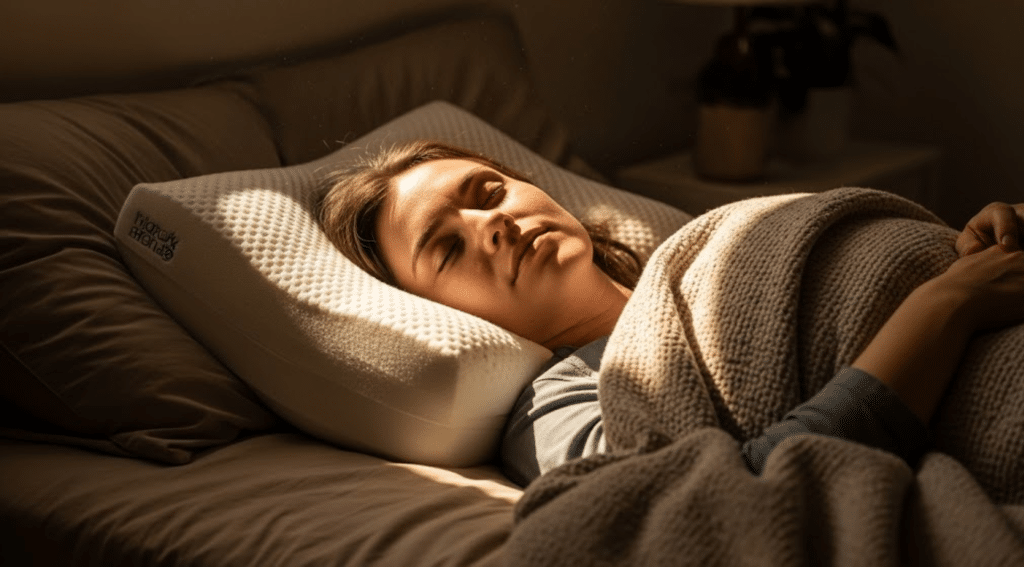Have you ever found yourself asking, Why do old people sleep so much? I’ve wondered the same thing, especially after noticing an older loved one napping more often or sleeping longer at night.
It can feel a little confusing when their sleep patterns start to shift. But the truth is, aging affects sleep in a lot of ways. Sometimes it’s just a normal part of getting older… and sometimes, there’s more to it.
Today, I’ll walk you through the most common reasons older adults sleep more, what’s considered normal, and when it might be time to check in. I’ll also share a few tips to help improve sleep quality as you age.
Let’s take a closer look together.
Why Do Old People Sleep So Much?
Older adults often experience sleep disturbances due to natural age-related changes, health conditions, medications, and lifestyle factors that can impact sleep.
Age-Related Sleep Changes
As people age, sleep patterns naturally shift. Older adults tend to experience more fragmented sleep, with less time spent in deep, restorative stages. They also tend to go to sleep earlier due to changes in their circadian rhythm.
This helps explain why older people sleep so much during the day; it’s often a way to make up for poor nighttime rest.
A decrease in melatonin production can further disrupt their ability to stay asleep throughout the night, leading to daytime sleepiness.
Health Conditions
Older adults often face chronic health conditions like arthritis, heart disease, and diabetes, which can disrupt sleep due to pain, discomfort, or other symptoms.
Sleep disorders, such as sleep apnea, restless legs syndrome, and insomnia, are also more common. Additionally, medications for anxiety, depression, and other health issues may cause drowsiness or interfere with sleep quality.
Lifestyle and Environmental Factors
A less active lifestyle can lead to increased sleep as older adults may have fewer structured routines.
Social isolation and boredom can contribute to daytime napping, as there is less mental stimulation and fewer engaging activities.
Poor nutrition or mental health challenges can also impact energy levels, making older adults more likely to experience daytime sleepiness.
Is It Normal for Elderly People to Sleep So Much?

It’s normal for older adults to sleep more, but understanding the aging process and recognizing when it may indicate health issues is essential.
Standard Aging Process
As people age, their sleep patterns naturally change. Older adults tend to sleep more lightly and spend less time in deep sleep.
Sleep duration may shorten, and they may wake up more frequently during the night. These changes are a regular part of the aging process, with sleep becoming less restorative and more fragmented over time.
When to Be Concerned
Excessive sleep in older adults may be a sign of underlying health problems like sleep disorders or cognitive decline, such as dementia.
If sleep patterns change suddenly, or if there is excessive daytime sleepiness not typical for that person, it’s essential to seek medical advice. Conditions like sleep apnea or depression may also contribute to these symptoms.
Why Do Elderly People Sleep So Much Compared to Younger Adults?
As people age, their sleep becomes lighter and more fragmented. Older adults often wake up more during the night and get less deep sleep, which can lead to increased tiredness during the day.
Unlike younger adults, they may also have medical conditions, take medications, or follow less active routines, all of which contribute to needing more rest or frequent naps to feel refreshed and alert.
So, if you’ve been wondering why old people sleep so much, it’s often a mix of aging changes, lifestyle habits, and health conditions, but it’s important to stay alert to any unusual shifts in sleep patterns
How Much Sleep is Healthy for Elderly People?
The amount of sleep needed for older adults can vary based on individual health, lifestyle, and activity levels. However, general recommendations can help guide healthy sleep patterns.
- Recommended Sleep Duration: Older adults should aim for 7 to 9 hours of sleep each night for optimal health. This helps maintain physical and mental well-being.
- Napping: Short naps (15-30 minutes) can be beneficial for recharging, but longer naps may disrupt nighttime sleep and should be avoided.
- Sleep Quality: Focusing on sleep quality, getting restorative sleep is as important as the amount of sleep, especially for cognitive and physical health.
How to Improve Sleep Quality in Older Adults
Improving sleep quality in older adults involves creating a comfortable environment, making lifestyle changes, and seeking professional help when needed.
Creating a Sleep-Friendly Environment
A quiet, dark, and cool bedroom is key for quality sleep. Consider:
- Blackout curtains to block light
- Earplugs or white noise machines to reduce noise
- Maintaining a comfortable room temperature
Additionally, adjusting your bed and pillows to support a good sleeping posture can significantly improve comfort.
Opt for a mattress that suits your body’s needs, and make sure your pillows provide proper neck support.
Lifestyle Changes for Better Sleep
Regular exercise helps regulate sleep patterns and promotes deeper sleep. Aim for 30 minutes of activity most days.
A balanced diet with foods like cherries, almonds, or warm milk can aid sleep, while avoiding caffeine and heavy meals close to bedtime is essential.
Stress management techniques, such as relaxation exercises and deep breathing, are crucial. A calming bedtime routine, including reading or a warm bath, can improve sleep hygiene.
Consulting Healthcare Providers
If sleep problems persist, consult a doctor to rule out conditions like sleep apnea or insomnia. They may recommend a sleep study to monitor sleep patterns or prescribe treatments like cognitive behavioral therapy (CBT) for insomnia.
Your doctor may also discuss possible adjustments to your medication if it is affecting your sleep quality. Identifying underlying conditions, such as depression or chronic pain, can help improve sleep through targeted treatments.
Conclusion
Understanding why old people sleep so much can really help when you’re caring for yourself or someone you love. Now that you’ve seen how sleep changes with age, what’s normal, and when it might be a sign of something more, you’ve got a clearer picture of what to look for.
This is a great time to check in on sleep habits and try a few small changes. I’ve found that even little things, like a calming bedtime routine or moving more during the day, can lead to better, deeper rest.
And don’t forget, staying active and mentally engaged makes a big difference too.
Want more simple tips for aging well and sleeping better? Take a look at my other blogs and keep finding what works best for you.











